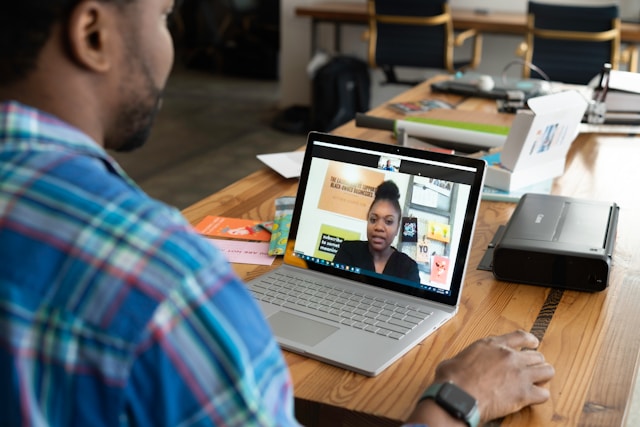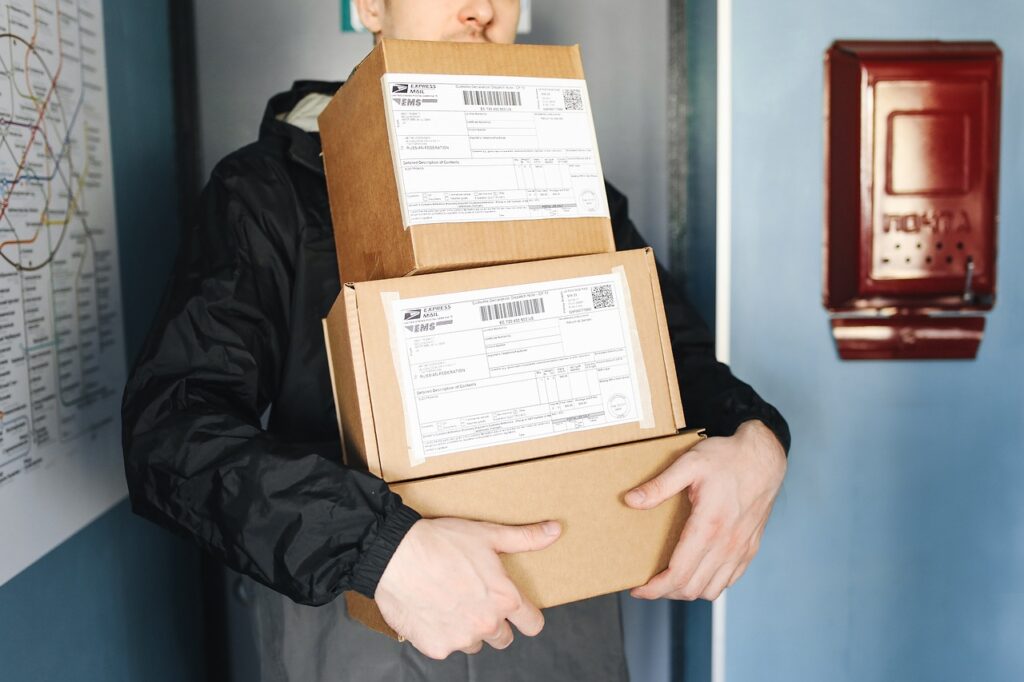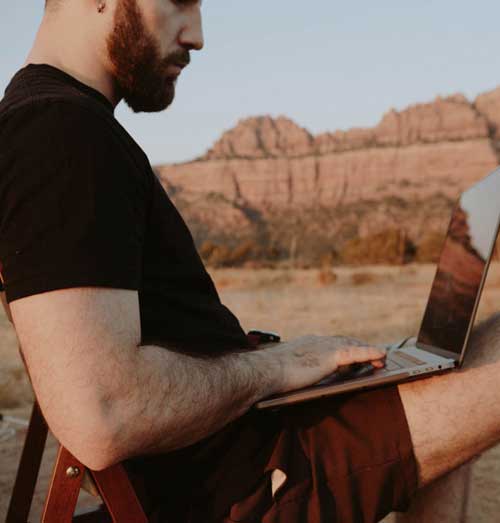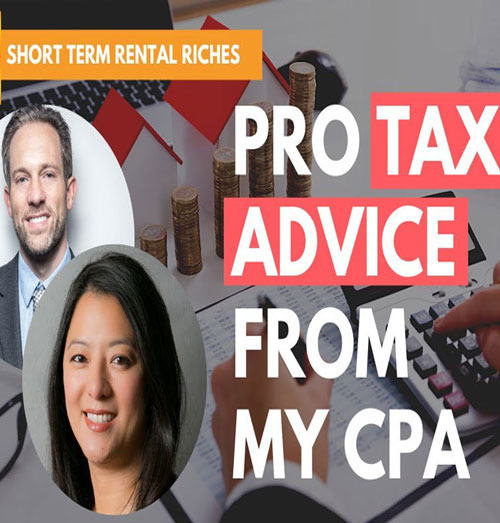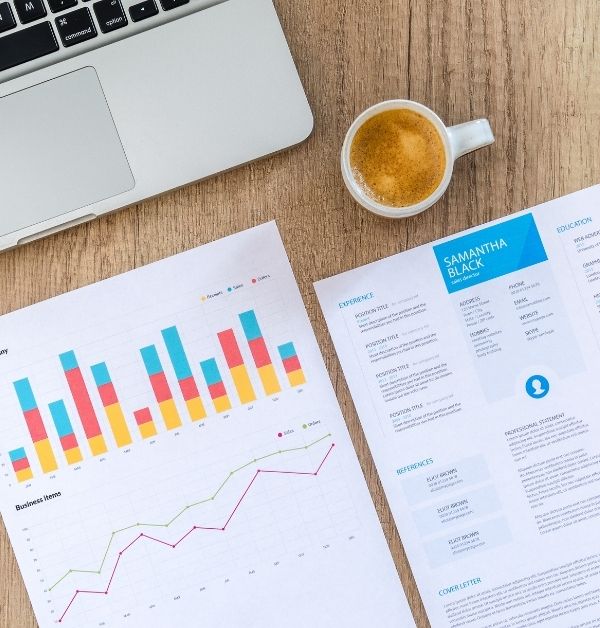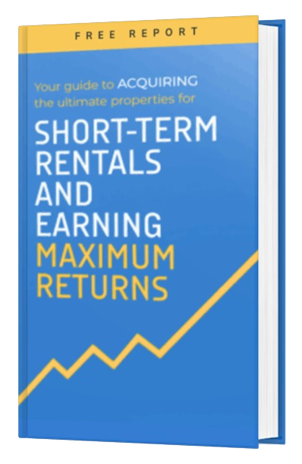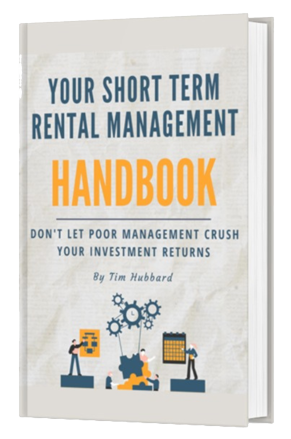230. People Are Giving Up: State of the Economy
It’s not always sunshine and rainbows, and today we’re taking a serious look at the state of the economy and what it means for us in the short-term rental world. With the impact of inflation hitting hard and credit card debt reaching new heights, it’s essential to understand how these macroeconomic factors influence our industry. But don’t worry, it’s not all doom and gloom. We’ve got some real insights and actionable advice to help you navigate these choppy waters.
In this episode, we’re breaking down the nitty-gritty of what’s happening across the country, with a special focus on the short-term rental market. Thanks to a report from KeyData, we have access to precise data from thousands of properties, giving us an accurate picture of the challenges and opportunities we face.
In this episode you’ll learn:
- Economic Overview: An honest look at the current economic challenges
- Nationwide Data Analysis: Insights from KeyData’s report that reveals nationwide trends
- Despite the downturn, learn about markets that are still thriving and how proper management can lead to success.
- Practical tips and strategies for improving property performance
That wraps up our deep dive into the state of the economy and its impact on short-term rentals. Remember, while the landscape may be shifting, there’s always opportunity for those prepared to adapt and innovate. Don’t miss our next episode, where we’ll explore overlooked opportunities for boosting your rental’s revenue. Until then, keep striving for excellence in your properties and remember, the best investment you can make is in your own knowledge and preparedness. Stay tuned, and here’s to your continued success in the world of short-term rentals!
Need help managing your short-term rental and you don’t want to go it alone? Shoot us a message here and we’ll see if we can help.
Are you enjoying the podcast? Please subscribe, leave a rating and a review, and share it! This helps us reach others that may find the info helpful as well.
👉 MAXIMIZE your STR success with my FREE resources 👈
Click Here to view TranscriptWelcome back to the Short Term Rental Riches Podcast.
You’ve been listening for a while.
You know, I’m a pretty positive guy.
I like to keep things light, but sometimes we have to be real, and I feel it is my duty to share with you this week the state of the economy with some real life examples and a report from a popular software company that we use or that a lot of property managers use that has direct data on thousands and thousands of short term rentals across the US.
So stay tuned as we talk a little bit about the state of the economy and what it means for your short term rentals.
Welcome to Short Term Rental Riches.
We’ll discuss investing in real estate, but with a specific focus on short term rentals, quick, actionable items to acquire, manage, and scale your portfolio.
I’m your host, Tim Hubbard.
Well, welcome back to the Short Term Rental Riches Podcast.
Happy you’re here again.
Not necessarily the brightest topic this week, but of course, as we know, real estate is not a general thing.
When we talk about real estate, we’re not talking about the United States.
It’s not like it’s one market.
There are thousands of individual markets.
Some of those can be doing really well, and some of those might not be doing so well.
I’m gonna break down some numbers this week on some averages, and this is across the nation and multiple different markets, so these will be averages, but it does give us some good insights.
So first of all, we know that things are a little tough out there for a lot of people, right?
Inflation has made a huge impact on the economy.
Groceries are incredibly expensive.
Everything seems to be more expensive these days, right?
And that’s exactly why credit card debt is at an all-time high as well.
People are using more credit cards.
They’re defaulting on their loans.
It’s pretty tough out there for a lot of us.
So if that’s you, I’m sorry.
I hope that you’re able to make it through these tough times.
And if you have a short-term rental that’s struggling, I hope this podcast has been helping you.
We’ve got actionable tips and ideas every week, including this episode.
And so stick with us.
So just to go a little bit more down the sort of doom and gloom rabbit hole, one of my biggest mentors has talked about how we’re entering a renter’s nation for quite a while.
And now while that’s good for investors, right, where people own properties and we have people running them, it’s not necessarily good for the general public.
And people are saying, oh, the American dream’s kind of over.
And you know what?
It’s hard to buy a house these days.
The average person cannot buy a house these days.
And that is unfortunate.
So we’ve got to get creative.
We’ve got to get crafty.
There’s lots of creative financing things we can do.
I’ll save that for another episode.
But just to continue down this line a little bit, we hear these things on the news.
We hear our friends talking about these things.
I’ve been getting phone calls, and I’ve had meetings with people recently that are property managers, people that have decent size portfolios, that are giving up in some areas.
On top of that, we see a lot of your favorite short term rental content producers talking about drilling down into improving the properties they have, and there’s been a huge, huge push to revenue management, right?
Why is this all happening?
Well, because it needs to, because people aren’t buying as many properties as they were in the past, and so we’re trying to make the most of what we have today.
So that is just the real world out there in a nutshell.
These reports, which I’ll dig into, are showing the national averages down across the nation.
On the other end of this, though, we know that there’s always people that are doing well and the reality is, is that the better we manage our properties, the better they will do.
That goes for our short term rentals, just like it goes for our long term rentals too.
If you missed last week’s episode, we dove in deep on a hotel that’s been doing really well for a long, long time, decades and decades.
And so it can be done.
In fact, this hotel is charging more than $10,000 a night.
It was a documentary I found on YouTube and I pulled out some good nuggets.
I think that those will apply to all of you out there that have a short-term rental or that would like to get one.
And we do have partners that are joining our management program now that are acquiring properties and they’re doing really well.
So I don’t want to scare everyone off, but the reality is that things have changed a little, but the economy is different.
So check out last week’s episode 229 if you want to hear a little bit more about that hotel.
It’s doing really well and it’s been doing really well for a long time.
And now we’re going to jump into a report.
This is from KeyData.
Again, this is a software program that we subscribe to.
As a manager, as an owner-operator, most of you know I’ve got dozens of properties around multiple states.
We’re now managing even a broader range of properties, everything from the small little studio to the big lakeside home that sleeps 20 people.
It’s been awesome.
And I know a lot of our partners are crushing it.
I also know that some of our partners that have joined our program aren’t having such an easy time.
So mainly we’re seeing this in higher density vacation rental markets that saw the biggest increase in supply.
But this data from KeyData is really good.
We use it on a regular basis for all of our properties, for all of our partner properties.
And it’s very, very insightful because it links to property managers, software programs, it’s direct data.
And so what do I mean by that?
This isn’t scraped data like you might see on AirDNA or you might see on Pricelabs.
Scraped data means that there’s a web crawler out on the web crawling all these different listings, checking their nightly rates, and checking to see if their calendar is blocked.
But that point right there is where this data becomes not so accurate.
Just because a calendar is blocked does not mean it’s reserved.
So when you’re pulling up your AirDNA estimates and you see this property was occupied for 90% of the year, you don’t know if that owner stayed in the property for three months, for example.
So that can have a huge, huge impact on your numbers.
So the data that we get, my team and all the other property managers using KeyData, is direct data most of the time.
They also have the scraped data.
In fact, they actually provide some data to price labs, which a lot of you know, we use price labs for dynamic pricing.
Super, super helpful.
So they’re a good source of data, and they just publish a report on the state of the economy.
Before we get into it, just another note on KeyData’s data.
That sounds weird saying that, KeyData’s data.
It started more with a focus on vacation rental markets where property managers in the short term rental world have been around for a long, long time.
So I would say that their data is a little more geared towards vacation rental markets as opposed to urban markets.
But let’s just go ahead and get into it, because obviously there’s vacation rental markets across the nation, right?
So we had COVID, we had all the money that came after that, and it was just money was everywhere, right?
People were giving out loans, there’s trillions of dollars printed.
And what happened?
We all know this, we’ve been in the industry for a little bit with short term rentals.
A lot of people bought short term rentals, and a lot of people were staying in short term rentals.
So I think it was really good for the visibility for the market.
But unfortunately, some of those markets increased a lot in supply, and those are the ones that are having the most challenges.
So we can’t really go back and look at 2021, 2022 data, and use that to predict or to make projections going forward.
But 2023 was a pretty normal year.
And so we can compare 2023 with 2022.
And when we do, and when we see KeyData, there are reports which are coming out from actual data, right?
These are actual reservations confirmed.
It’s showing that things are pretty much down across the board.
So the occupancy is down nationwide.
Supply is actually up 11% in 2023.
So if we think about it, 11%, that’s a huge number.
That’s thousands and thousands of short term rentals.
So the supply went up and the occupancy went down.
So why might our average daily rate be going up?
Well, inflation.
So yes, all those trillions of dollars that were printed after COVID have officially made their way into the economy and still are, unfortunately.
And so that pushes prices up.
So average daily rates are going up along with that.
But the overall revenue across the nation is down.
Most of these figures are sort of the high single digit percentage.
So the again, they took data from lots of different markets across the nation, but most of them are sort of in the high single digit decreases.
So occupancy, for example, down 8%, 9% year over year compared to last year.
So that’s not great, right?
Again, all markets are totally different.
There’s a lot of people out there that are crushing it.
I want to talk about the metric which really means everything, right?
So we can talk about occupancy.
We can talk about ADR, and those two together are going to give us our total revenue, which is a really good idea of what’s going on.
But what most hoteliers use and what’s really, in my opinion, the most important metric for monitoring our performance is what we call RevPAR, so Revenue Per Available Room Night.
Now, the room in this definition just means property, right?
This came from the hotel world.
So RevPAR is the most important term, and I want to break down a quick example just to explain exactly what it is.
Let’s take an example where someone earned $4,000 in revenue in the month of July.
So the month of July has 31 nights.
So if we divide the $4,000, the total revenue, by the amount of available nights, the 31.
And remember, this is available nights.
So I like this equation because it accounts for days that got blocked, maybe due to maintenance, maybe due to the fact that an owner is staying in a property.
So it gives us more accurate data.
So, okay, we have $4,000 and we divide that by 31.
That gives us a RevPAR of $129 per day.
So this means that this property, whether it was booked or not, earned $129 per available day in the month of July, which in this example, we just said all 31 days were available.
So again, I like this equation because RevPAR is the combination of our occupancy and average daily rate and accounting for the days that aren’t available.
So let’s break the example down just a little bit more.
Let’s take July and August, but let’s say that this property still only earned $4,000 amongst those two months.
So we could essentially divide it in half, right?
Because August has 31 days, July has 31 days.
So we’re taking the total revenue $4,000 divided now by 62.
And so that comes out to like $64 per day.
So remember this is an average across a time span.
And again, when we look at the average RevPAR across the nation, across these different cities and counties, it is also down a pretty significant amount.
And so unfortunately, the nationwide averages again, averages are decreasing.
This means that there’s less money in owner pockets.
So yes, not great news for all of you out there.
I’m sorry, but I feel it is my duty to share the inside information that I have the phone calls out on the street that I’m getting.
But I will tell you that these metrics don’t apply to everyone.
These stats, I should say, do not apply to everyone.
We have lots of partners that are crushing it.
When I look at my own personal portfolio, and as you know, I’ve been in this for a long time since 2015.
In fact, we were just reviewing our review strategy lately, and we have like a lot of reviews.
Seriously, we have like over 10,000 reviews on Airbnb.
Not guests that stayed at our property, not reservations, but actual reviews, so actually people that left reviews.
And yes, we still have Superhost status on most of our accounts.
We do have lots of different Airbnb accounts now.
We are still a premier host status on VRBO, and we only have one of those accounts.
So our team is doing a fantastic job, and that all translates into the performance for our properties.
If you’ve been listening to the podcast for a while, then you know that I’ve been managing my properties virtually for years and years.
My team and I have managed thousands of guests.
We’ve learned a ton, and I’m really happy with the progress and the growth we’ve made.
In fact, we’re now big enough to help manage your properties as well.
Our team has a ton of experience from the inner city apartment to the large lakeside retreat.
We’ve worked with all types of properties across the nation.
We’ll help to take the management workload off your plate while earning top revenue and excellent guest reviews, all while charging an industry low fee.
If you’d like to find out if your property fits with our program, just head to strriches.com.
There you’ll see a property management button.
Again, that’s strriches.com.
Just click on the property management button, and we look forward to chatting with you soon.
So I know in Memphis where I happen to have a lot of one-bedroom apartments, I can look at the data, the internal data, and see that last year, my properties, my one-bedroom properties, performed 34% better than the market did.
And this year, we’re already on track to perform 40% better.
So I’m not saying that to brag or saying that we get all the steps right or do all that.
And of course, we do have a longer history, so we have a bigger base of reviews and really good reviews.
But I just want to reiterate the fact that you can have two short-term rentals next to each other, and they can perform very, very differently.
And it all comes down to management and your guest experience.
So we talk about that all the time, but we can’t talk about enough.
That’s the reality because it really comes down to the guest experience and getting those good reviews.
If you’re out there and your property is struggling a little bit, I’ve got a couple tips for you.
And I promise next week’s episode, we have a way to help you boost your revenue, maybe some overlooked opportunities.
So I’ll get into that next week.
But you might find yourself in a tough spot where you’re thinking, you know what, I’m going to hold off on this maintenance upgrade, or I’m going to hold off on replacing this worn out furniture.
But I will tell you that that is a slippery slope.
So invest in what you’ve got.
Of course, we can look at all of our expenses.
We can cut them wherever we can.
But our properties, we have to keep those in really good shape.
Now, your guest communication means a ton, right?
So if you had things on autopilot, if you had a larger portfolio out there, and you were just sending automated messages, maybe it’s time for you to make those messages a little more personal to ensure that your guests have an excellent stay, because the properties out there that are getting this right are the ones that are outperforming all of the other properties and the ones that are going to stick around for the longest.
I say stick around, I hope that we’re all going to stick around here, right?
But I can tell you just based off some of the phone calls I’ve received recently, that some people are deciding not to manage properties anymore because it’s maybe gotten too challenging, or maybe they’re managing for partners or other owners that bought properties in a market that was oversupplied and they have unrealistic expectations.
So it is a little more challenging for some of us out there, but there’s always two sides to every story, right?
Hopefully, you have a rainy day fund that was set aside just in case.
Again, hopefully, your property is doing really well.
Lots of our properties in our portfolio are still doing really well.
But take a look at your expenses.
I know we’ve been looking at our expenses, and there’s some that, especially those monthly subscriptions, right?
We just cut out one that we used to track our virtual team.
So we have quite a big virtual team now, and we were paying around $150 a month for Hubstaff.
It was a time tracker.
I actually probably recommend it on this podcast sometime over the last few years.
As you know, this is like year four already, or we’re really far into it.
So it’s been a good fun journey, and we’re not going anywhere.
So I hope you join us here every week for good tips.
But check some of the subscriptions, those things you’re using.
We just cut out Hubstaff and replaced it with a one-time purchase for $100, which basically does exactly what it was doing.
So we’re going to save like $1,500, $2,000 a year.
It’s amazing.
Check out AppSumo.
It’s where you can go to buy programs that are typically sold on a subscription basis, but they have deals and you can buy them on a one-time basis.
So check that out.
I hope you can cut out a little bit of cost there.
Don’t skimp on your maintenance or your property.
It’s a slippery slope.
Make sure your communications are really, really good.
Maybe it’s time you take some of those off autopilot.
Make sure you’re managing your reviews really well.
And you know, at the other side of this, if you are struggling, just know that some people are kind of giving up, sadly.
And that means that that’s taking supply out of the market.
We know that people are still discovering alternative options at hotels, right?
Staying on Airbnb and these platforms are still growing with demand.
So, sorry to have not great news for some of you out there.
That’s just the state of the economy and that’s kind of how things are going.
But there’s always two sides to every story.
Next week, we’ve got a good opportunity to earn a little more revenue, something you might be overlooking.
So, make sure you stay tuned.
And until then, I hope you have a fabulous week.
If you’ve been listening to the podcast for a while, well, then you know that I love technology and we can save a ton of time implementing AI artificial intelligence in the right ways.
My team and I have been playing around with this for months and we’ve written the perfect prompts that you could just plug in to your favorite AI tool like ChatGPT to help you uncover exactly who your guest avatar is, help you write your listing descriptions, help you write your photo captions and so much more.
It’s a living, breathing document that we’re consistently working on, and I’d love to give it to you for free for being one of our loyal listeners.
You can head over to restmethods.com forward slash AI and get your copy for free.
I hope it helps you along your short term rental journey.
Thank you.

